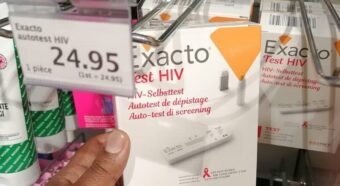Shaping markets to work for Africa through local manufacturing of health commodities
- December 16, 2022
- Conference
- By The Bureau
- Read in French

The African Constituency Bureau for the Global Fund (ACB) organized a side event on policy dialogue on advancing Local Manufacturing for Health Commodities in Africa on the margins of the 2nd International Conference on Public Health in Africa (CPHIA). In the event, which was held on 14th December 2022, dialogue was prompted by panelists from ministries of health, regional economic communities, international institutions, and initiatives versed in the field of local manufacturing of health commodities. The meeting aimed at contributing to preliminary discussions and inform deliberations planned in 2023 for experts, who will reflect on a draft position statement for Africa and its implications for NextGen Market Shaping.
As a matter of fact, 95% of all medicines used in Africa are imported and the continent accounts for just 3% of all medicine produced globally. This represents an existential threat to Africa’s health security as highlighted by Dr. Stephen Karengera, Director of EAC Regional Centre of Excellence for Vaccines, Immunization and Health Supply Chain Management. Further, dependance on imports makes Africa a passive player in the market, as articulated by Dr. Gerald Macharia, Vice President at Clinton Health Access Initiative who pointed out that “we are the only demand that has no control over supply”. The side event therefore was an opportune platform for the elevation of African voices on this topic.
The issue of local manufacturing has been on the global health agenda for years, however, the creation of a conducive environment for the actual production of health commodities still lags behind. Undeniably, numerous challenges exist, among which are the lack of leadership at the governmental level, the fact that only less than 1% of African suppliers are prequalified by WHO, the scarcity of expertise in the continent, and uncertainty around the impact of regional policies such as the Africa-free trade agreement on local manufacturing.
Despite these bottlenecks, progress has been visible in the past year through the launch and establishment of the African Medicines Agency and the Africa pharmaceutical technology foundation. These institutions certainly advance the local manufacturing agenda. However, the need for coordination between these initiatives and others is indispensable to attain the vision of coherence and harmonization of regulatory policies, ultimately shaping sustainably African markets.
Participants in the meeting put forward recommendations on how to materialize local manufacturing of health commodities. Consequently, issues that require special consideration include greater involvement of the private sector, continental demand aggregation, leadership from government, prequalification, coordination and policy coherence between health, trade, finance, and other critical sectors, an enabling ecosystem that includes favorable tax regimes, investment in research and development, capacity building and inclusion of youth in the policy discourse among others. Importantly, Africa needs to have a guaranteed quota of the commodities for its distribution, sourced from the continent.
Finally, discussion around this topic also evolved around the prioritization of the production of health commodities considered essential for the continent, ensuring the quality of products and accordingly, changing the substandard perception of communities about local products. A call was made to the African Union to continue leading the process of harmonizing the regulatory policies and coordinating discussion in this area which is a critical sector that not only adds value to the sustainability of the health agenda, but also to economic growth.
Fassika Alemayehu


